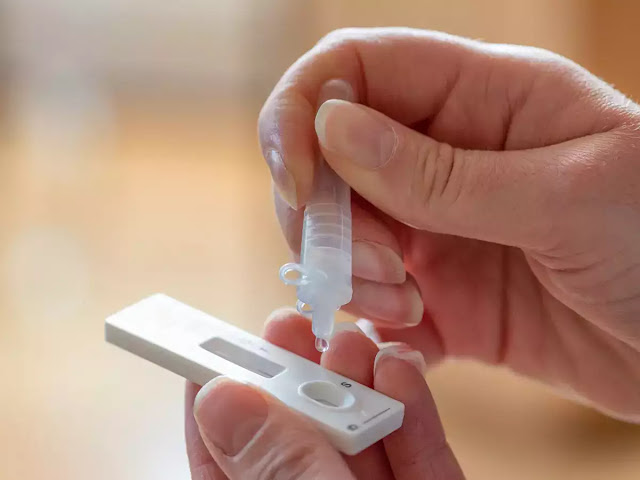Empowering Yourself: The Importance Of Self-Testing
 |
Self-Testing |
In today's fast-paced world, where information is
readily accessible and self-care is becoming increasingly popular, Self-Testing has emerged as a powerful
tool for individuals to take charge of their health and well-being.
Self-testing refers to the practice of conducting tests or assessments on
oneself to gain insights into various aspects of personal health, fitness, or
overall condition. This innovative approach empowers individuals to proactively
monitor their bodies, make informed decisions, and take necessary actions to
maintain optimal health.
One of the key reasons why Self-Testing is gaining momentum is the convenience it offers.
Traditionally, people had to rely on healthcare professionals or clinics to
conduct tests, which often involved scheduling appointments, waiting for
results, and incurring expenses. However, self-testing enables individuals to
bypass these barriers and access valuable information about their health from
the comfort of their own homes. With the advent of user-friendly testing kits,
ranging from blood glucose monitors to genetic testing kits, individuals can
now track their blood pressure, blood sugar levels, cholesterol levels, or even
analyze their DNA without having to leave their homes.
Another crucial aspect of Self-Testing
is the sense of autonomy and control it provides. By actively participating in
their own health monitoring, individuals become more aware of their bodies and
develop a deeper understanding of their unique health needs. This awareness
fosters a proactive approach towards personal health, enabling early detection
of potential issues and the ability to make lifestyle adjustments or seek
medical assistance promptly. Empowered with information, individuals can engage
in meaningful conversations with healthcare providers, ask relevant questions,
and actively participate in their own treatment plans.
Self-Testing also promotes
preventive care by encouraging individuals to be proactive rather than
reactive. Regularly monitoring key health markers empowers individuals to
identify potential risks or warning signs before they develop into serious
health conditions. For example, individuals at risk for diabetes can monitor
their blood sugar levels to detect any abnormalities early on, enabling them to
make necessary dietary changes or seek medical intervention. Early detection
and intervention can significantly improve health outcomes and reduce the
burden of chronic diseases.
Moreover, self-testing can be particularly
beneficial for individuals with chronic conditions or those on specific health
journeys. It allows them to track progress, evaluate the effectiveness of their
treatment plans, and make adjustments accordingly. For instance, someone
following a weight loss regimen can use self-testing to monitor body fat
percentage, muscle mass, or even hormonal levels, enabling them to fine-tune
their approach and stay motivated. Pregnancy
Testing Devices are designed to detect the presence of human chorionic
gonadotropin (hCG) hormone.
Self-Testing is revolutionizing
the way individuals engage with their health and well-being. By providing
convenient access to information, fostering autonomy and control, promoting
preventive care, and aiding those on specific health journeys, self-testing
empowers individuals to take an active role in their personal wellness. It is
an invaluable tool that enables individuals to make informed decisions, seek timely
medical assistance, and ultimately lead healthier and more fulfilling lives.
Embracing self-testing is a powerful step towards self-empowerment and a
testament to the growing importance of personalized healthcare in today's
society.



Comments
Post a Comment